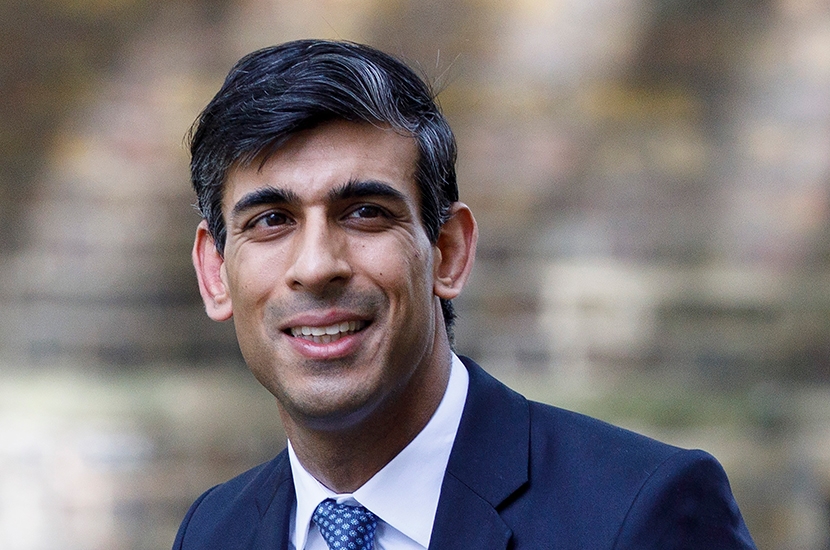Should Chancellor Rishi Sunak cut VAT as an emergency stimulus to the consumer economy? When Labour’s Alistair Darling made a 2.5 per cent £12 billion cut after the 2008 crash, I called it ‘an unconvincing and expensive gambit’, on the basis that shoppers would barely notice and that ‘far more significant will be the general level of confidence as it is affected by business failures and job losses… and the general grimness of global economic news’. The same applies today only more so, given that inflation is dormant, households’ pent-up spending power has in many cases been boosted by lockdown and the top VAT-cut winner would likely be Amazon.
By all means relax Sunday trading laws and restrictions on outdoor food and drink service. What matters most is getting millions of people swiftly and safely back to work in consumer-facing jobs. A cut in employers’ national insurance contributions might help, but what’s essential is to convince the public that this government is competently managing the balance of risks between lives and livelihoods. Right now, few of us believe that — and tinkering with the tax code won’t change our minds.
Optimistic successors
In the television drama Succession, the monstrous media patriarch Logan Roy philosophises shortly before the family-feud finale: ‘Most things don’t exist. The Ford Motor Company hardly exists. It’s just a time–saving expression for a collection of financial interests.’ The same might be said at this juncture of Intu, the debt-laden owner of UK shopping centres which has appointed administrators in case rescue talks fail.
Founded in 1980 by the South African tycoon Sir Donald Gordon, Intu after multiple restructurings is essentially a collection of loan agreements and unhappy investors on one side, matched on the other by shop leases on which, because of lockdown on top of retail turmoil, much of the rent is currently uncollectable. If that structure collapses, as has looked possible since a £2 billion loss was reported in March, creditors will take a hit but the shopping malls will still stand, and optimistic successors will find ways to repurpose them. That, as Logan Roy might also point out, is the Schumpeterian way of things. There will be many more stories like it ahead — and many new feats of entrepreneurship amid the wreckage.
Frozen estates
‘Delays and problems at the Probate Office are causing distress to families already suffering stress and grief,’ says the Sunday Times. As executor for an old lady who died in February, I’m close to this topic. What with 65,000 ‘excess deaths’ during the pandemic, you might think Whitehall would make sure death-related bureaucracy is working as smoothly as possible — not only to make bereavement easier to bear but also, pragmatically, to hasten back into the tottering economy all the capital that’s tied up in temporarily frozen estates.
‘Working from home’ is the excuse for late responses from banks and HMRC as well as probate offices themselves, reducing the whole complex process to a crawl. The number of probate applications submitted during lockdown has actually been half the normal level, so sackloads are expected in the coming months, creating further logjams. If you’re waiting for the nest egg that will enable you to start a business or buy a first home, and for the opportunity to toast the generous testator, the only consolation I can offer (so a lawyer tells me) is that ‘it was actually much worse last year: at one stage letters and phone calls weren’t answered at all. Nothing to do with any killer virus, they were just busy restructuring HM Courts & Tribunals Service.’
Pandemic winners
The FT offers an eye-catching list of 100 global companies that have ‘prospered in the pandemic’ as eager share-buyers have added billions to their market capitalisation despite broader forecasts of doom. The top ten US tech firms — from Amazon to Netflix — have soared in value by $1.2 trillion between them, while unsurprisingly a quarter of all the names listed are in healthcare, and 23 are Chinese. What’s also striking is how many fortunes are being made in online gaming stocks, including the only Irish contender, Flutter (parent of Paddy Power), whose shares have doubled since March.
As for UK companies, only two make the cut, both strictly speaking only half-British but both having added $9 billion of market value. The Anglo-Swedish drug maker AstraZeneca is a frontrunner in the Covid vaccine race and said to be in merger talks with Gilead of the US. The consumer goods giant Unilever is in favour with investors partly due to a decision to drop its historic Anglo-Dutch structure in favour of simplified UK leadership, having previously botched an attempted shift in the opposite direction; even more reassuringly, it reports booming sales of Domestos.
Meals on wheels
And so to gastronomy. One reader tells me regular hampers of delicacies from Fortnum & Mason have sustained him happily through the lockdown. But the posh Piccadilly grocers look late in the game in launching a fine-dining-at-home service from their in-house restaurant 45 Jermyn Street (Golden Oscietra caviar: £80 a portion) just as the hospitality sector at large is about to re-open. By contrast I hear Los Angeles’s ultra-fashionable Vespertine eatery has been doing a lively takeaway trade for months, with tasting menus themed in ‘homage’ to other famous Californian restaurants. The great advantage, says my correspondent, is that whereas dining in the extraterrestrial ambience of Vespertine itself, with whispering waiters robed like monks, can cost $1,000 per couple with wine and service, the meals-on-wheels version is ‘more like $70 to $80 per person and, on the whole, terrific’.







Comments